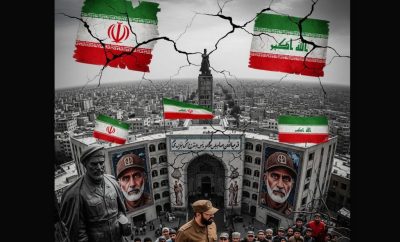
Macron’s road map for France & Europe
To push through his reform agenda, President Emmanuel Macron has launched an offensive on two fronts: the home front and the European front. He needs to prevail on both to succeed.
Internal reform and European reform
As Macron is facing his first street protests, much of the political attention in France is focused on his effort to reform the labor market and reduce budget deficits while cutting taxes. Less noticed is that he has started developing a European agenda that heads in an opposite direction.
Launching his reform to make the French labor market more flexible, he also leads a charge for more restrictive EU rules on posted workers, which have come under heavy criticism in France and elsewhere as encouraging “social dumping” because they allow firms from any EU country with lower labor costs to compete with local companies. As the finance Minister Bruno Le Maire is working on budget and tax cuts at home, he also has put forward at the EU level a proposal to tax revenues of major internet companies, in a push back against those companies “shopping” for countries within the common market that offer the lowest tax rates even while doing the majority of their business in other EU states.
But there is no contradiction here — at least within the confines of French and EU politics. These moves are deliberate and carefully coordinated. They illustrate Macron’s method for overcoming internal divisions in France: hard reforms at home to achieve a more open and more competitive French economy, counter-balanced by a European Union that satisfies demands for protection against globalization. His vision is that of a more competitive France within a more protective European Union.
Towards European sovereignty?
This is a new way to approach European politics. For years, national governments have agreed behind closed doors to impose EU-wide reforms thought necessary but hard-to-sell at home, allowing the leadership of various nations to complain publicly about the EU dictating from Brussels while privately agreeing about the measure being taken. This fiction has allowed governments to pitch themselves as defenders of national sovereignty against technocratic European rules — the type of playbook that Poland and Hungary are now using. And it also led wide parts of the electorate to turn their back on the EU, perceived as the Trojan horse of globalization. In an effort to reverse this logic, Macron now campaigns for reform at home, while promising to regain control and protection at the European level.
In Athens, he coined the essence of his vision for Europe by calling for a “European sovereignty.” The EU should be ready to assert its own interests on the world stage on a par with other powers and to protect its own social and economic model — which Macron distinguishes from both the American model and the Chinese model. He thereby revives the French idea of the EU as an independent power in a multipolar world.
Beyond ‘globalism vs. nationalism’
This is part of a broader attempt to overcome the divisions that run deep through the French body politic. The French elections have been described and discussed as yet another battle in the now familiar war between “globalists” and “patriots” (in Marine Le Pen’s own terms) and routinely hailed as a major win for the former camp. And yet, during the campaign, Macron always refused to embrace Le Pen’s terminology, and did all he could to avoid being identified as a “globalist.” Instead, he said the real debate was between “progressives” and “nationalists.”
Macron knows the overarching challenge of his mandate will be to stop the hemorrhage of voters towards the far-right nationalism of the Front National or the far-left protectionism of Melenchon. That means he cannot ignore the demand for more protection from globalization that these voters expressed — and which is heard almost everywhere in Europe. The battle ground is, and will be, the perception of the European Union by the French public.
By putting forward “European sovereignty,” Macron therefore aims at overcoming the divide between globalists and nationalists. However, it is unclear whether he can convince other EU countries that this is the way to go. It will not be easy, as the challenges of the last decade have left European States divided and distrustful of each other. But as other European countries face similar challenges from nationalist forces at home, they may find Macron’s vision for the European Union a more attractive policy road map for Europe’s leaders in the future.
Paul Zajac is a French career diplomat and a visiting fellow at the American Enterprise Institute (AEI) where he focuses on Europe and the European Union, transatlantic and European security issues, NATO, and France.




